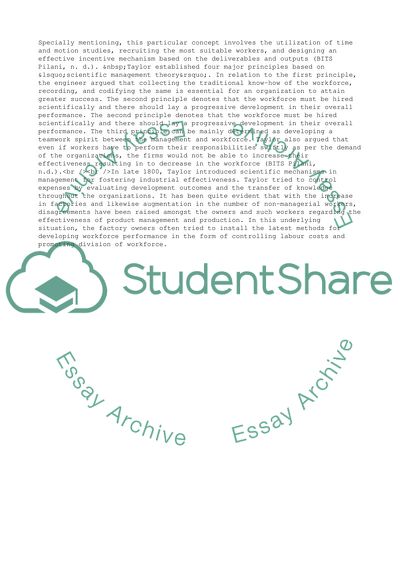Cite this document
(What Impact Has Scientific Management Had on Non-Managerial Workers Coursework Example | Topics and Well Written Essays - 1750 words, n.d.)
What Impact Has Scientific Management Had on Non-Managerial Workers Coursework Example | Topics and Well Written Essays - 1750 words. https://studentshare.org/management/1855141-what-impact-has-scientific-management-had-on-non-managerials-workers
What Impact Has Scientific Management Had on Non-Managerial Workers Coursework Example | Topics and Well Written Essays - 1750 words. https://studentshare.org/management/1855141-what-impact-has-scientific-management-had-on-non-managerials-workers
(What Impact Has Scientific Management Had on Non-Managerial Workers Coursework Example | Topics and Well Written Essays - 1750 Words)
What Impact Has Scientific Management Had on Non-Managerial Workers Coursework Example | Topics and Well Written Essays - 1750 Words. https://studentshare.org/management/1855141-what-impact-has-scientific-management-had-on-non-managerials-workers.
What Impact Has Scientific Management Had on Non-Managerial Workers Coursework Example | Topics and Well Written Essays - 1750 Words. https://studentshare.org/management/1855141-what-impact-has-scientific-management-had-on-non-managerials-workers.
“What Impact Has Scientific Management Had on Non-Managerial Workers Coursework Example | Topics and Well Written Essays - 1750 Words”. https://studentshare.org/management/1855141-what-impact-has-scientific-management-had-on-non-managerials-workers.


